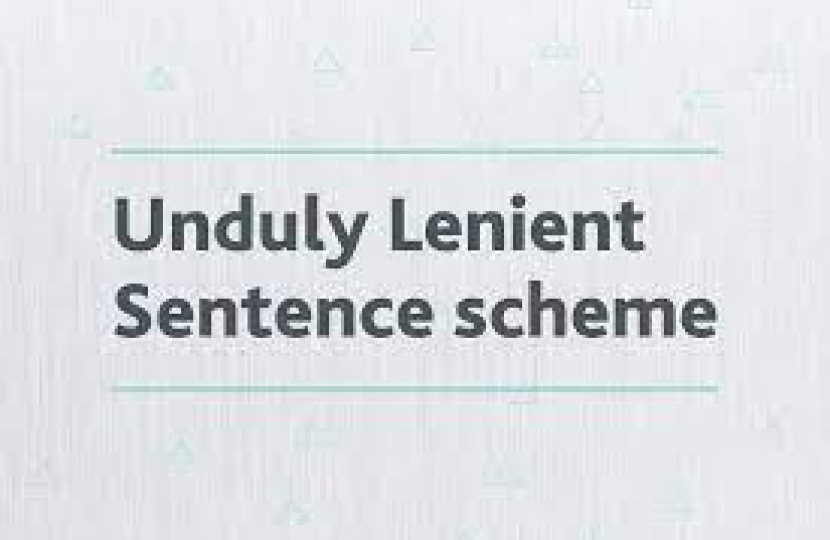
James comments after referring the prison sentence of Aurelijus Cielevicius who killed three people in a fatal collision on the A47 to the Attorney General as Unduly Lenient.
The driver was convicted of three counts of causing death by dangerous driving when he killed Paul James Carter, Lisa Jayne Carter, and her daughter Jade Channelle Mace and sentenced to ten and a half years. James used the Unduly Lenient Sentence scheme to ask the Attorney General to refer the case to the Court of Appeal as unduly lenient. However, after carefully reviewing the case and ruling the Solicitor General (who deals with requests on behalf of the Attorney General) concluded there was not justification for doing doing so.
James Wild MP said:
“This was a truly devastating crime and this despicable offender has caused immense suffering to the family and friends of the victims through his appalling actions. Anyone can refer a prison sentence they consider too low to the Attorney General and I have done so in a number of constituency cases and others.
The Solicitor General has considered this case carefully and while I am very disappointed it won’t be referred to the Court of Appeal, the offender has no right to automatic release after two thirds of his sentence - the Parole Board would have to conclude he no longer presents a danger to the public.
When the circumstances of a case and the offender are clear, it is time to review whether someone should get a reduction in the length of a prison sentence simply for pleading guilty.
If you see a sentence you think is Unduly Lenient Sentence and should be longer then visit https://www.gov.uk/ask-crown-court-sentence-review
Text of letter from Attorney General
Dear James,
Unduly Lenient Sentence Scheme
Thank you for your email in which you requested a review of the sentence imposed on Aurelijus Cielevicius. It is clear and obvious that this has had a devastating impact on the family and friends of Paul, Lisa and Jade.
After receiving an earlier email about this matter, my office requested copies of the papers relating to this case from the Crown Prosecution Service. These included the facts of the offending, the judge’s findings and the sentencing guidelines. I have considered this documentation with care. In addition, I took advice from a barrister specialising in sentencing.
Nothing that I say and no sentence, however long, could ever bring Paul, Lisa and Jade back or undo the despicable act of the offender. The behaviour of the offender that night was truly appalling. The question I have to ask is whether there are sufficient legal grounds to conclude that the sentence would likely be increased by the Court of Appeal. A referral under the Unduly Lenient Sentence scheme to the Court of Appeal can only be made if a sentence is not just lenient but unduly so. After detailed examination of the case, I am afraid it is not possible to meet this threshold; and in those circumstances I cannot properly make such a referral. I know this news will be disappointing to you, and I wanted as a courtesy to write personally and in a little detail to explain how this assessment has been reached.
By way of background, the bar to increasing a sentence is a very high one. The Court of Appeal will only grant permission to refer a sentence in exceptional circumstances: for example, if the judge has made some gross error, or has passed a sentence that falls outside the range of sentences which a judge, applying their mind to all the relevant factors, could reasonably consider appropriate.
In considering this, the Court of Appeal will look carefully at the definitive sentencing guidelines which judges must follow when passing sentence, save for where it would be contrary to the interests of justice to do so.
The offender was convicted of three counts of causing death by dangerous driving. The guidelines require the offending to be categorised based on an assessment of the level of seriousness of the driving. The judge placed the offending in the highest category, level 1. After categorising the offence and considering any further aggravating and mitigating features, the judge must impose a sentence within the range specified by the guideline.
In this case, the judge applied the relevant guidelines. After careful consideration, I have concluded that this was done appropriately. The judge categorised the offending accurately and identified the correct starting point. He applied an uplift to the sentence to reflect that the maximum penalty for the offences recently increased from 14 years to life imprisonment. He was alive to the aggravating features of the case, which included the number of offences to which the offender pleaded guilty. He then made a downward adjustment to reflect the offender’s guilty plea.
The judge imposed an extended sentence because he concluded that the offender was dangerous. This means that he is eligible to apply for parole after serving two thirds of the sentence but will only be released if the Parole Board is satisfied that detaining him is no longer necessary for the protection of the public. He is not eligible for automatic release after serving two thirds.
I appreciate that sentences deemed to be within a reasonable range from a legal perspective may not be considered appropriate by victims of crime. However, the test for undue leniency is so strictly applied that it would have been wrong for me to refer this case after having concluded that the Court of Appeal would be unlikely to increase the sentence.
I am very sorry that I am not able to give you the news that you will have been hoping for, but please be assured that I have given your request and this case the most careful consideration.
Yours sincerely,
MICHAEL TOMLINSON KC MP
SOLICITOR GENERAL

